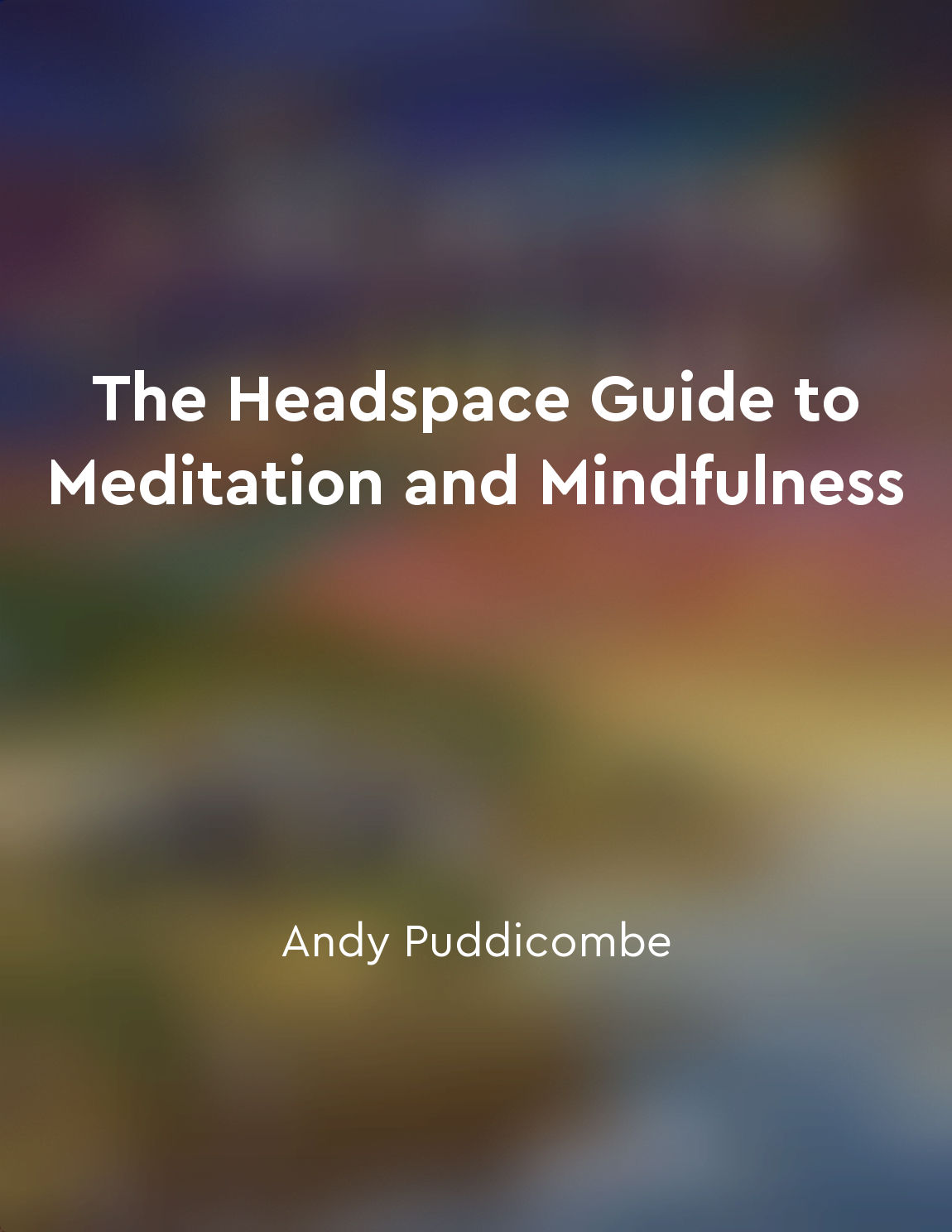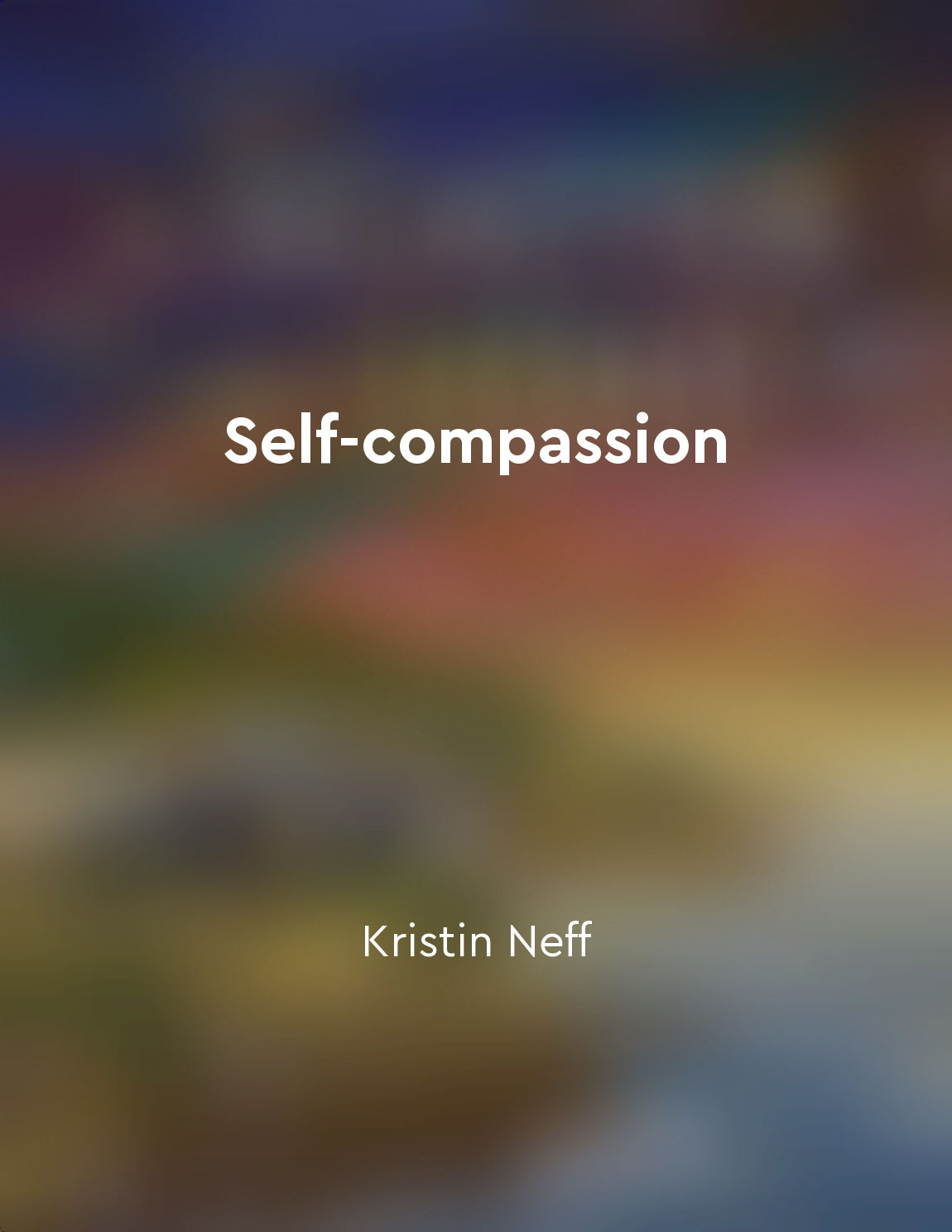Cultivate selfcompassion in moments of anxiety from "summary" of The Mindful Way through Anxiety by Susan M. Orsillo,Lizabeth Roemer
When anxiety strikes, it can feel like we are under attack. Our minds race with worries and fears, our bodies tense up, and we may even start to panic. In these moments, it is easy to fall into a pattern of self-criticism and self-blame. We may berate ourselves for feeling anxious, telling ourselves that we should be stronger or more capable. However, this kind of self-criticism only serves to make our anxiety worse. It adds an additional layer of stress and negativity to an already difficult situation. In order to break free from this cycle, we need to cultivate self-compassion in moments of anxiety. Self-compassion involves treating ourselves with kindness, understanding, and acceptance, just as we would treat a close friend or loved one. It means acknowledging that it is okay to feel anxious, that it is a natural human response to stress and uncertainty. Instead of beating ourselves up for our anxiety, we can offer ourselves words of comfort and reassurance. When we practice self-compassion, we create a safe space within ourselves where we can experience our anxiety without judgment. We can acknowledge our feelings with gentleness and compassion, rather than harshness and criticism. This allows us to approach our anxiety with a sense of curiosity and openness, rather than fear and resistance. Self-compassion also helps us to cultivate a sense of perspective on our anxiety. Instead of getting caught up in catastrophic thinking and worst-case scenarios, we can step back and see our anxiety for what it is – a temporary and passing experience. We can remind ourselves that we have faced challenges in the past and have come through them, and that we have the inner resources to cope with whatever comes our way. In moments of anxiety, self-compassion acts as a lifeline, offering us support and comfort when we need it most. It helps us to weather the storm of our anxiety with grace and resilience, knowing that we are not alone in our struggles. By cultivating self-compassion in moments of anxiety, we can learn to navigate our inner world with kindness and compassion, paving the way for healing and growth.Similar Posts

Developing a regular meditation practice can lead to lasting changes in the brain
Developing a regular meditation practice has the potential to cause structural changes in the brain. This is a groundbreaking f...
Practice mindfulness
Mindfulness is the key to unlocking the secrets of life. It is the practice of being fully present in the moment, without judgm...
Discover your strengths and values
Understanding your strengths and values is a crucial step in building a fulfilling and meaningful life. When you take the time ...
Lack of sleep affects willpower
When you're tired, it's no secret that you're more likely to give in to temptation. But why does this happen? Lack of sleep aff...
Stay committed to your goals
To achieve your goals, you must stay committed to them. Commitment means sticking with your goals, even when things get tough. ...
Cultivate a positive mindset
To cultivate a positive mindset is to intentionally train your brain to focus on the good rather than the bad. It's about shift...
Cultivate an attitude of gratitude
To cultivate an attitude of gratitude is to deliberately develop a mindset that recognizes and appreciates the positive aspects...

Focus on the sensations of the breath to anchor your attention
When we sit down to meditate, the first thing we do is to find a comfortable position. Sitting cross-legged on the floor is ide...

Selfcompassion is not about being self-centered or selfish
Self-compassion is not about being self-centered or selfish. It might seem that way at first glance since the concept involves ...
Focus on consistency, not perfection
The key to creating lasting change is to focus on consistency rather than perfection. This means that you should strive to make...
